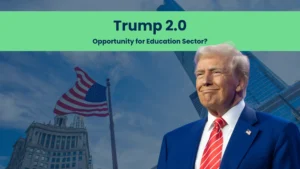Elon Musk, the tech visionary behind Tesla and SpaceX, recently expressed his belief that the value of a college education is “overweighted.” In his view, too many students spend four years in college, amass significant debt, and walk away without practical skills. He argues that trade professions like electricians, plumbers, and carpenters are more valuable in society than certain degrees, and that success doesn’t necessarily require a four-year college education.
While Musk’s critique raises valid concerns, particularly about the cost of higher education and the mismatch between some degrees and job market needs, it overlooks many critical aspects of education. The reality is that college offers far more than just job-specific skills. Let’s break down why education, particularly higher education, still holds significant value.
The Broader Purpose of College
Musk’s argument focuses on the pragmatic, economic benefits of education, emphasizing hands-on skills over theoretical knowledge. However, the purpose of college isn’t solely to provide job-specific training. Higher education is designed to develop well-rounded individuals who can think critically, solve complex problems, and adapt to changing circumstances.
According to a 2019 Georgetown University study, over 80% of job opportunities require some form of postsecondary education. Moreover, those with a college degree are more likely to have a range of job options, higher earning potential, and long-term job security. These opportunities extend beyond narrowly defined job skills and contribute to an individual’s overall development, both personally and professionally.
College Degrees Still Boost Career and Earnings
While Musk suggests that certain professions might offer more immediate value, data consistently shows that college degrees provide long-term financial benefits. A study from the Pew Research Center found that college graduates earn an average of $20,000 more per year than individuals without a degree. Over a lifetime, this difference adds up to nearly $1 million.
Moreover, degrees in fields like engineering, computer science, healthcare, and business are not only valuable but also in high demand. Musk’s own industries—Tesla and SpaceX—are filled with engineers, software developers, and researchers who have benefited from a formal education. While trade professions are essential to society, the idea that a degree doesn’t contribute to success overlooks the many career paths that demand higher education.
Education Beyond Job Skills: Critical Thinking and Innovation
One of the most valuable aspects of a college education is the development of critical thinking, creativity, and adaptability—skills that are crucial in the fast-paced, ever-changing modern world. According to a report by the World Economic Forum, complex problem-solving, critical thinking, and creativity are among the top skills required by employers today. These abilities often stem from an interdisciplinary approach to education, where students are encouraged to engage with diverse ideas and perspectives.
Musk himself, a pioneer in space exploration and electric vehicles, represents the power of innovation. However, innovation often happens when diverse fields intersect—when knowledge of science, technology, economics, and even political science or humanities comes together to solve complex global problems. Universities provide the framework to encourage this kind of interdisciplinary learning.
College as a Social Equalizer
Musk’s argument also overlooks the critical role education plays as a social equalizer. For many people, especially those from disadvantaged backgrounds, college is a pathway to upward mobility. A degree often opens doors that would otherwise remain closed, providing access to careers that offer financial stability and growth.
In countries like India, where education is deeply valued as a means of economic advancement, access to higher education can change the trajectory of entire families. According to UNESCO, higher education has a profound effect on reducing poverty and inequality globally. College doesn’t just equip students with technical skills; it empowers them with the knowledge, networks, and credentials needed to break cycles of poverty.
Trade Professions and College: Not an Either-Or Choice
Musk rightly points out that skilled trades are essential and often undervalued. Electricians, plumbers, and carpenters are vital to society, and there is certainly a need for more recognition and investment in vocational training. But the argument that college and trades are mutually exclusive is a false dichotomy.
Vocational education and higher education can coexist, with each serving distinct but complementary roles. In fact, many countries like Germany have successfully integrated vocational and higher education through apprenticeship programs that allow students to gain hands-on skills while pursuing academic qualifications. This blended approach ensures that both pathways are equally valued and that individuals have the flexibility to choose what suits them best.
Education for a Changing World
One of Musk’s concerns is that many students graduate with degrees in fields that don’t directly translate into job opportunities, such as certain liberal arts majors. However, the notion that education should only be about job readiness is shortsighted. Education equips individuals to be adaptable in a world where jobs are increasingly being automated or rendered obsolete.
The future workforce will need to be versatile, innovative, and capable of lifelong learning. College prepares students not just for their first job but for a career that will span decades of rapid technological and societal change. According to a McKinsey Global Institute report, nearly half of the tasks done by humans could be automated by 2055, which underscores the importance of higher education in fostering the critical thinking and adaptability needed for such a future.
Conclusion: The Value of a Balanced Perspective
While Elon Musk’s success story is inspiring, it doesn’t negate the immense value of higher education for millions of people worldwide. College provides far more than just a degree—it builds the critical, creative, and social skills necessary for individuals to succeed in a complex, ever-changing world. For most people, education is not an outdated concept but a necessary foundation for long-term success and societal contribution.
As we move into a future shaped by technology, automation, and global challenges, the value of education—whether through universities or trade schools—remains undeniable. Rather than viewing it as an “overrated” institution, we should continue evolving education to make it more inclusive, adaptable, and aligned with the needs of the 21st century.





